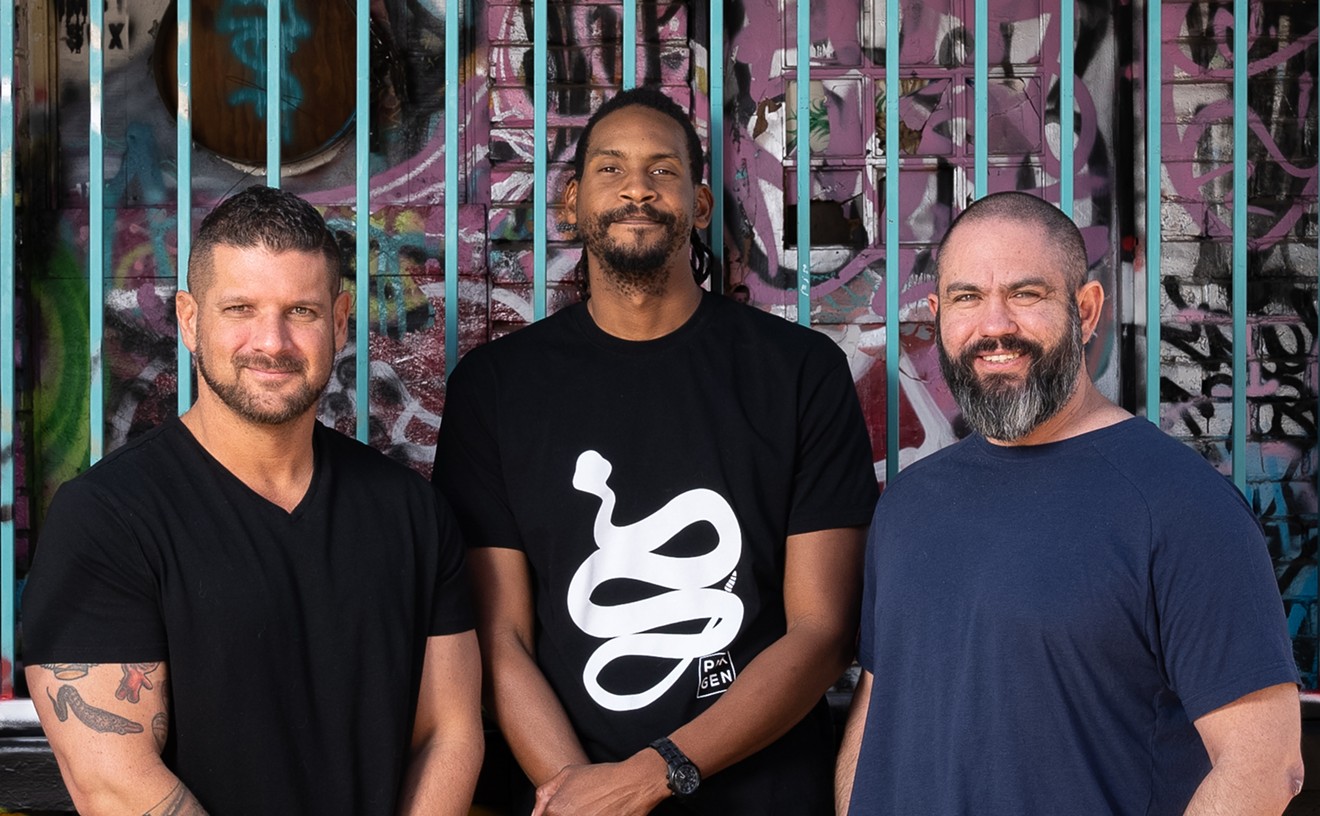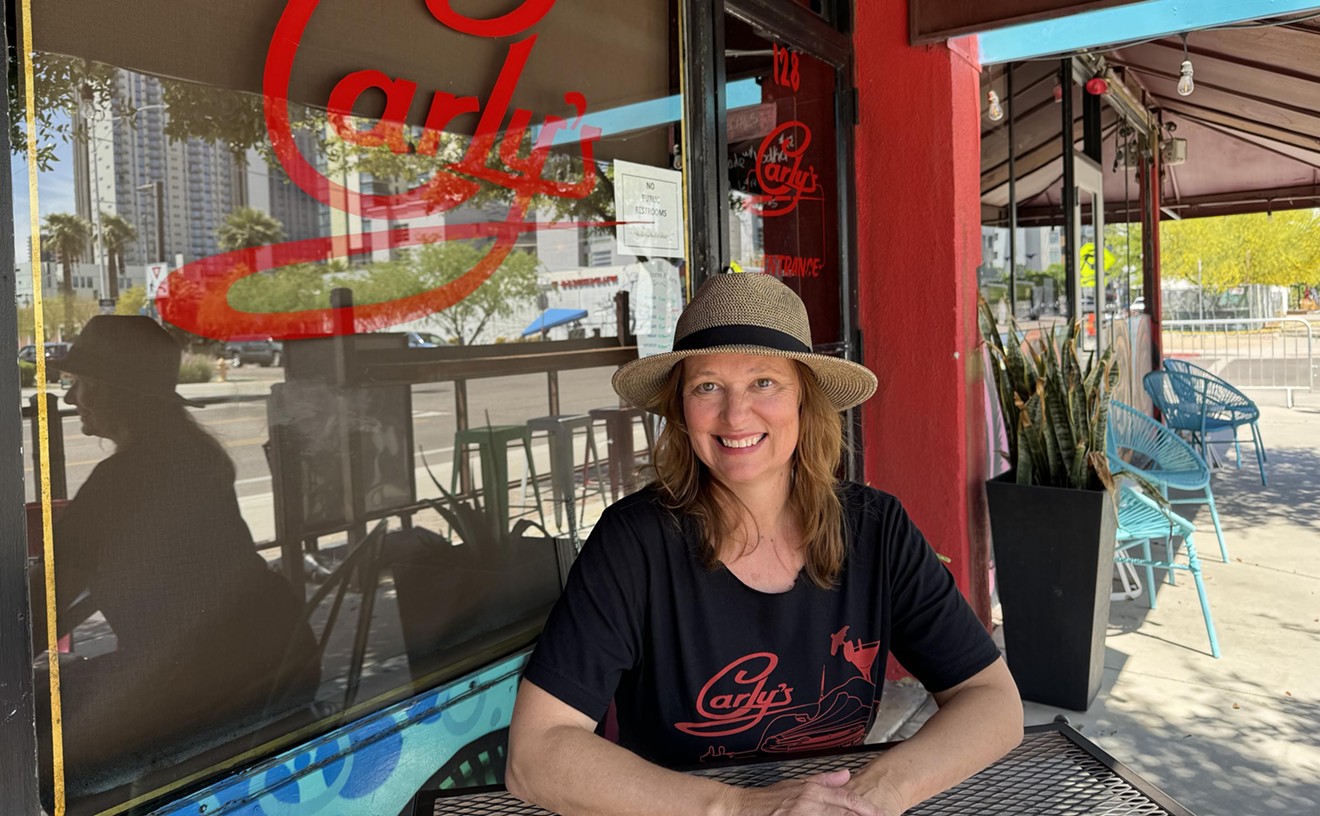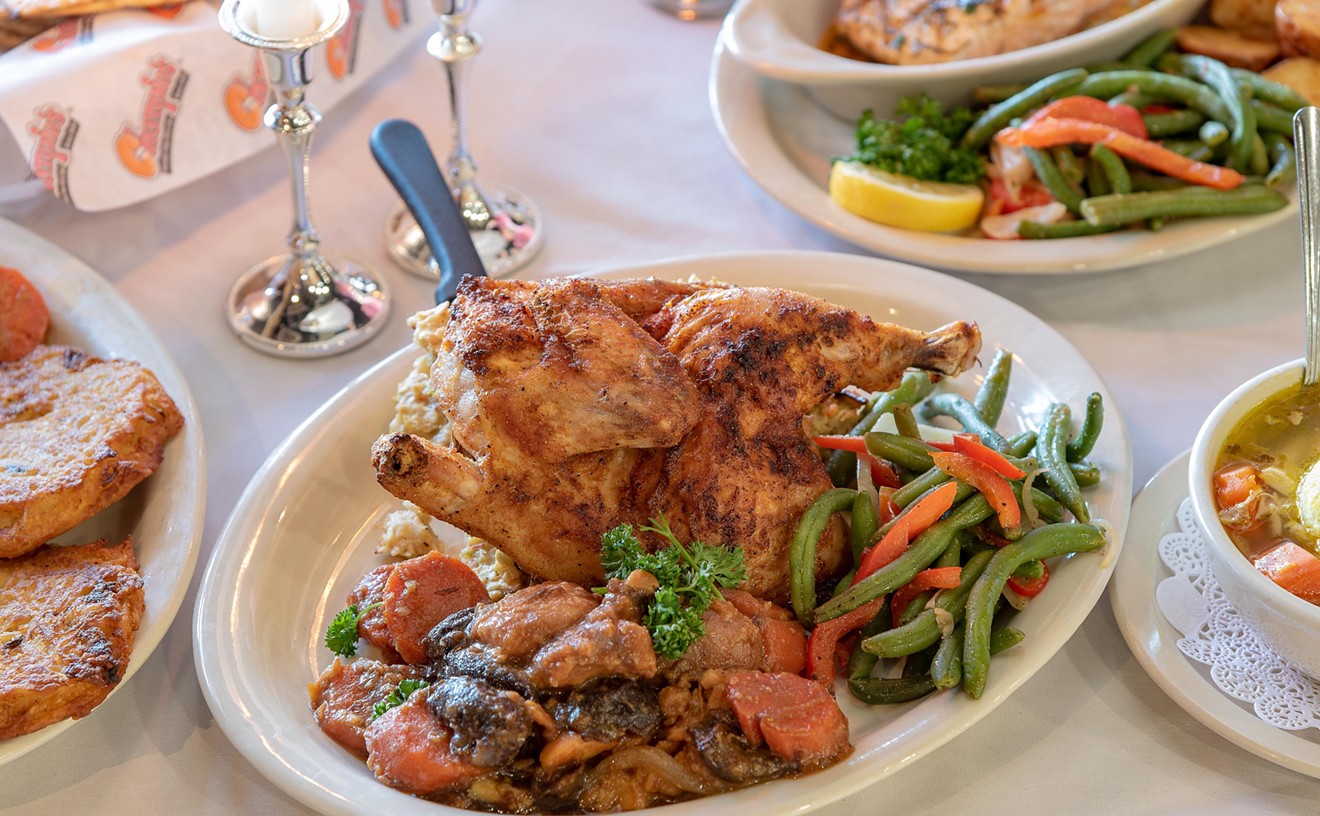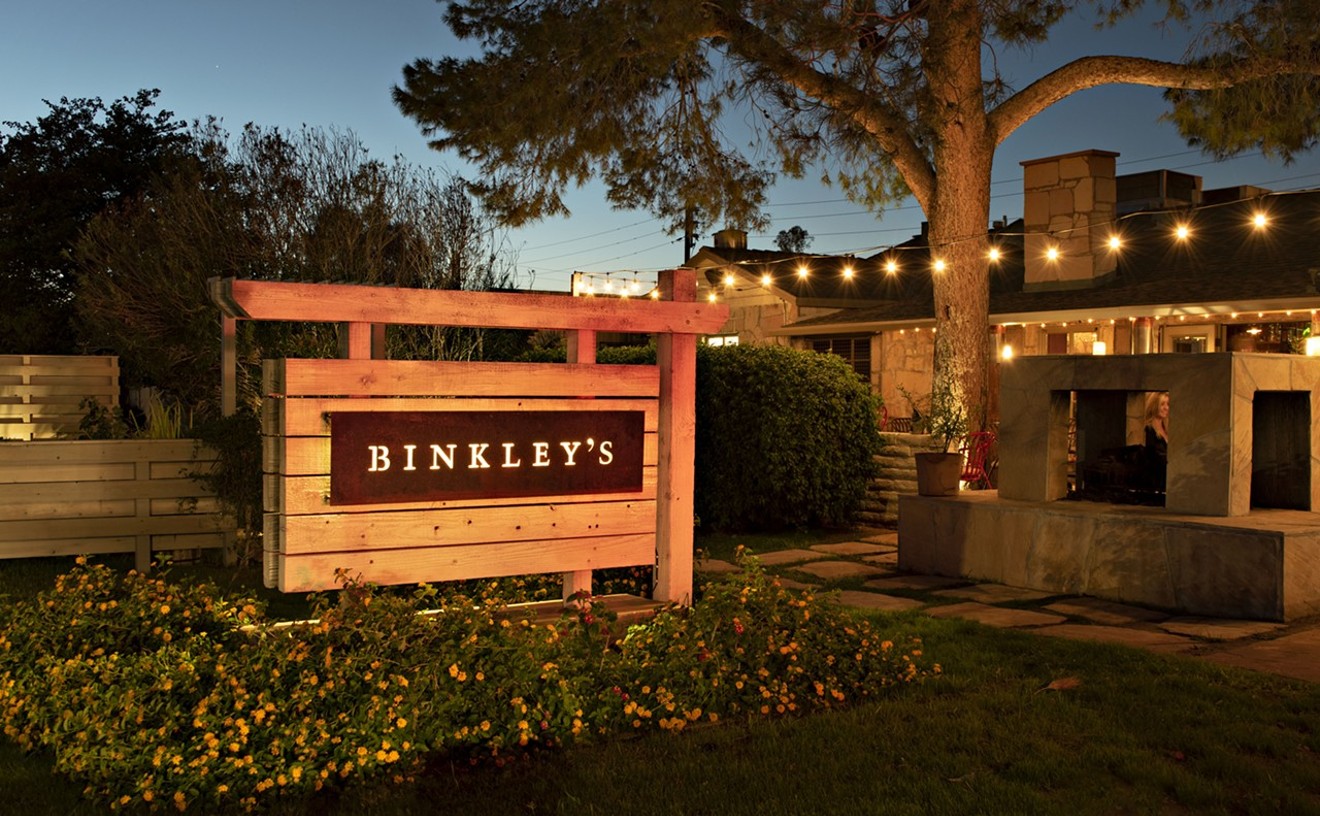New Day is a homeless shelter. It occupies the old Sands, which, in its day, was perfectly swank: one of dozens of hotels that competed for travelers on East Van Buren Street, "Gateway to Phoenix." In the smooth, sweeping curve of its dining room counter -- an architect's confident clean line -- one can still sense the exuberance, the verve, of a newly post-war American West. The booths are gone, and with them the hotel's moneyed patrons, but also the cockroaches that accumulated over decades of subsequent neglect.
By and large, Van Buren's hotels are still here. Some of them rent rooms by the hour to prostitutes, who walk the street's broken sidewalks in five-inch platform heels. Some of them are legitimate businesses; others, falling-down and vacant. And some of them, like the Sands, which was acquired by United Methodist Outreach Ministries, have been revived as shelters and rehab facilities. They accommodate hundreds of people who, Phoenix-fashion, struggle to re-create themselves from the ashes of addiction and poverty. Dunbar and Gary Law, New Day's director of operations, think they can help.
"I guess as you get older you get more socially conscious," says Dunbar, who applied for the New Day job some months ago. He directs the shelter's kitchen, which serves about 500 hot meals every day -- to children leaving for school; to younger children in the center's day care program; to residents on their way to work. His eggs and bacon, bread and soup afford daily sustenance to men and women who have often gone without.
But it is a new project, the Apprentice Chef Program, that Dunbar is most excited about. Four students enrolled in the program's trial run, which began July 1; one will graduate this month. The next session begins in September. Open to adult residents of the shelter, it is an eight-week course based on a standard culinary school curriculum: classes in which students learn cooking essentials. Dunbar's apprentices will learn about food safety and menu planning. They'll learn to sharpen knives and julienne carrots; to not overcook fish; to deglaze a roasting pan. With luck, they'll make -- not break -- a perfect hollandaise sauce. Then, in a two-week "externship," they'll practice their skills under the supervision of capable Valley chefs.
"What we're trying to do," says Dunbar, "is give them a strong, basic, classical foundation, so that they can do more than work at McDonald's or Burger King. They'll still have a lot to learn when they get out. But hopefully we can give them a good start."
The program has been in its planning stages for a year and a half. It was conceived before Dunbar was hired. But when he heard about it, Dunbar knew exactly what UMOM officials had in mind. He had heard of something like it in San Francisco, a program whose merit and challenge had appealed to him.
"I remember talking to my wife about it," he says. "I thought it was great. When I called here about the job, and they told me what they wanted to do, I thought: 'Perfect!'"
"He's been a great asset to us, really," says Law, who praises Dunbar for his enthusiasm and ability. "We're very excited about the program."
Yet Dunbar has run into some obstacles. Some residents at the shelter regard it with skepticism, even suspicion.
"They have a tendency to think that we're just going to make them work," Law acknowledges. Such qualms are not entirely groundless. Jacki Taylor, UMOM director, observes that New Day residents have "a lot of superimposed structure," including obligations to refrain from drug use, and to work, study or perform community service. But while Dunbar intends to use classroom projects in dining room meals -- the vegetables from a chopping lesson in a soup, for instance -- instruction, not enforced labor, is the program's primary aim.
"Hopefully, once they see what it's all about, we'll have more people sign up," Law says.
Other problems derive from residents' low literacy rates and tenuous number skills, which are impediments to following recipes and written instructions. With this in mind, Law has recruited tutors who are willing to "help a little extra"; to review measuring-cup math and chef's notes with students who might be struggling. And students will be given the chance to complete their "homework" in the kitchen, where Dunbar can offer guidance.
A primary goal of the program is to prepare students for accreditation by the American Culinary Federation. According to Dunbar, a student who obtains that organization's stamp of approval is raised immeasurably in the estimation of prospective employers.
"Any certificate we can give them is not going to mean as much as ACF," he says. "We want to give them as much preparation as we can for good jobs in the food industry."
That emphasis is not crucial just to the apprentice chef program, it is a key aspect of tackling the homeless problem in its entirety, which in Phoenix is largely a question of numbers. According to Louisa Stark, director of Community Housing Partnership, market housing in Phoenix demands a minimum wage of about $11 an hour. Jobs start at little more than half that. Until affordable housing becomes a reality here, solving the homeless problem will take more than matching luckless men and women to help-wanted ads.
It will take programs, and people, like this.










